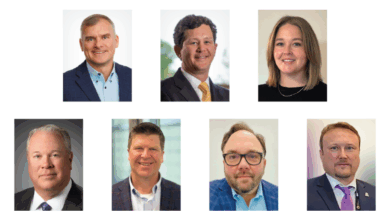Industry must engineer for simplicity, standardization
Unfortunately, reality is a matter of perception, and the perception of mediocrity is out there. The time to change is now.
I had the fortune of hearing industry veteran David Payne of Chevron address a crowd of more than 1,000 people during the GE Oil & Gas Annual Meeting in Italy earlier this year. His message was loud and clear: Industry must visibly raise standards across the board or risk losing its license to operate from the public. “We have to earn that license to operate everyday,” he reminded the audience.
Although much of the change that has taken place in this business since Macondo has been largely driven by regulators and politics, industry does have an opportunity to influence that change. And according to Mr Payne, that opportunity lies not in politics but in engineering.
First, industry must focus on engineering for simplicity. Good engineering doesn’t have to result in something that has never been done before. “The best engineer is the one who can provide the simplest possible solution,” Mr Payne said, citing the inventor of the bicycle as an example of a great engineer.
Second, engineers must pay more attention to the human-machine interface on today’s complex and sophisticated drilling systems. “How many engineers in this room spend the time, after you’ve designed the system, thinking about the person who’s going to operate it? How many engineers in this room spend time thinking about the capacity of the human brain?” Mr Payne asked.
Humans can only multi-task up to a point, beyond which a process or system becomes too complex. “We have yet to design any project in our business that does not rely on a human interface for successful operation… We have to spend as much time on these interfaces as we do on the equipment side,” he urged. In order to have more manageable human-machine interfaces for complex drilling systems, having standard industry practices is a must, he believes.
Establishing such standardization is obviously not an easy task. Unlike the US nuclear submarine industry or the air travel industry or the nuclear power industry – all of which have achieved a high level of standardization within their operations – the drilling industry comprises hundreds or thousands of stakeholders. Two drilling projects in close proximity to each other can be led by the same operator but have equipment with significantly different specs. This kind of complexity makes industrywide standardization challenging, to say the least.
Mr Payne emphasized that he’s not suggesting that our industry follow the templates used by the three aforementioned industries, because none of them would fit. “But that’s not an excuse not to look for a solution,” he said.
Just like in the immediate aftermath of the Macondo blowout, industry found a way to work together and establish the Joint Industry Task Force (JITF). Within a seemingly impossible amount of time, the two work groups within the JITF – one led by Mr Payne and the other by Diamond Offshore’s Moe Plaisance – were able to find immediate opportunities for improvement and make substantive recommendations to the US Department of Interior.
If we don’t want prescriptive rules handed down to us, industry itself must continue to push for more engineering improvements – before regulators and politicians force their perception into our reality.
Linda Hsieh can be reached via e-mail at linda.hsieh@iadc.org.




